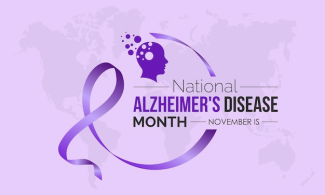
Alzheimer's Disease and Financial Planning
Alzheimer’s Disease and Financial Planning: Securing Your Future
Alzheimer's disease is a progressive neurodegenerative disorder that impacts memory, thinking, and behavior. As it advances, individuals often lose the ability to make sound decisions, which can create significant challenges for managing financial affairs. Early and proactive financial planning becomes crucial not only to secure the future for the person diagnosed but also to provide peace of mind for family members and caregivers.
Understanding Alzheimer’s Disease
Alzheimer's is the most common form of dementia, accounting for 60-80% of all dementia cases and the seventh leading cause of death. Symptoms typically develop slowly and worsen over time. While there is no cure, treatments can temporarily slow the worsening of dementia symptoms and improve quality of life for those affected. However, due to the progressive nature of the disease, individuals eventually require substantial care and assistance.
This progression has direct financial implications. The cost of long-term care, medical treatments, and caregiver support can be overwhelming for many families. Without proper planning, the financial strain can be devastating. Therefore, making informed financial decisions as early as possible is essential.
The Importance of Early Financial Planning
Once a diagnosis of Alzheimer’s is made, immediate steps should be taken to ensure that financial matters are addressed while the person can still participate in decision-making. Early planning allows the individual to have a say in how their assets are managed, what their preferences are for future care, and how they wish to support their loved ones financially.
Key areas to consider include:
1. Legal Documentation
- Durable Power of Attorney (POA): This document authorizes someone to make financial decisions on behalf of the person with Alzheimer’s when they are no longer able to do so. It’s crucial that this is set up early, as it cannot be created once the individual loses the capacity to understand and sign legal documents.
- Healthcare Power of Attorney: This authorizes a trusted individual to make healthcare decisions, which may include decisions about long-term care.
- Living Will: A living will outline the person’s wishes regarding end-of-life care. It ensures that family members and medical professionals understand the individual's preferences concerning life-sustaining treatments.
2. Reviewing Assets and Debts:
- income sources such as pensions, Social Security, or annuities. These income streams will likely play a critical role in funding future care needs.
- Review income sources such as pensions, Social Security or annuities. These income streams will likely play a critical role in funding future care needs.
3. Insurance Considerations
- Long-term Care Insurance: If obtained early enough, long-term care insurance can provide financial assistance for services like home care, nursing home care, or assisted living, which can be critical as Alzheimer’s progresses.
- Life Insurance: Some life insurance policies allow policyholders to access a portion of their death benefit early if they have a terminal illness or severe cognitive impairment.
- Health Insurance and Medicare: Understand the coverage that health insurance and Medicare will provide. Medicare typically does not cover long-term care, so additional coverage or savings might be required to bridge the gap.
4. Planning for Care:
- In-Home Care vs. Facility Care: Alzheimer’s patients often prefer to stay in their homes for as long as possible. This requires planning for in-home care, which can be costly if around-the-clock assistance is needed. Eventually, specialized memory care facilities may be necessary, so it's essential to evaluate different care options and associated costs.
- Caregiving Costs: If family members are expected to provide care, consider how this will impact on their finances. Caregiving can often require family members to reduce work hours or leave jobs altogether, creating a financial strain on both the caregiver and the person receiving care.
5. Creating a Budget for Care Needs
Alzheimer’s care can last many years, with costs rising as the disease progresses. Therefore, it's crucial to create a budget that accounts for current and future care needs, including medication, medical appointments, and home modifications.
The Role of Professional Financial Advisor
Given the complexity of Alzheimer’s care, seeking professional financial advice, such as GSI Financials can help families navigate these difficult decisions. Financial advisors who specialize in elder care or long-term planning can help you:
- Optimize savings and investments to cover future care expenses.
- Develop a strategy for drawing down retirement accounts while minimizing taxes and ensuring there’s enough money to cover future needs.
- Access government benefits such as Medicaid or Veterans Aid that may help with long-term care costs.
Protecting Against Financial Abuse
People with Alzheimer’s are particularly vulnerable to financial exploitation. Protecting against fraud or abuse requires vigilance and planning. Some steps to protect an Alzheimer’s patient’s finances include:
- Setting up alerts for unusual banking or credit card activity.
- Assigning a trusted family member to regularly review financial accounts.
- Restricting access to large amounts of cash or high-limit credit cards.
Conclusion: The Value of Planning Ahead
Alzheimer’s disease can be emotionally and financially overwhelming, but early and thoughtful financial planning can mitigate many of these challenges. By putting legal documents in place, reviewing assets, securing appropriate insurance, and seeking professional guidance, individuals and their families can navigate the complex journey ahead with greater peace of mind.
Planning ahead ensures that the person with Alzheimer’s has a say in how their affairs are handled, relieves their loved ones of unnecessary stress, and provides the resources necessary for the best possible care in the years to come.
Personal experience, my mother, Betty had Alzheimer’s disease. Fortunately, we were able to address many financial and legal considerations in advance, including long term care insurance. This allowed us to then focus on being there for my mom and caregiving responsibilities. Alzheimer’s is a devastating disease to your loved one and family. It is an emotional journey with many ups and downs. There are many excellent outside resources which I personally support available for assistance including:
- Alzheimer's Association Website: www.alz.org
- Alzheimer's Foundation of America (AFA) Website: www.alzfdn.org
- National Institute on Aging (NIA) Website: www.nia.nih.gov/health/alzheimers
Have a Question? Want a free Consultation?
Schedule Your Complimentary Meeting.
732-259-8703


